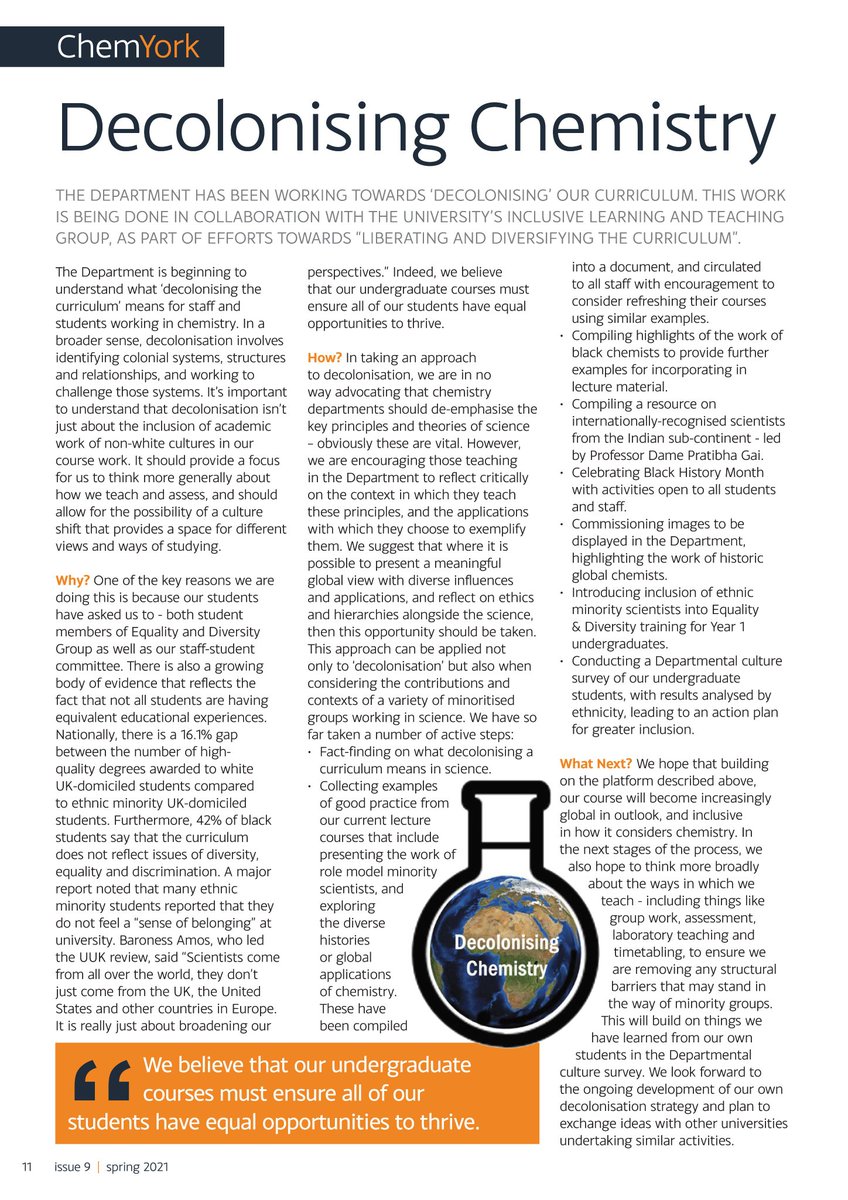This paper argues against 'politicisation of science'. It's a seductive idea that science has been apolitical and things like decolonisation contaminate it, but it's wrong. Science has always been political - with significant impact on outcomes & culture.
pubs.acs.org/doi/10.1021/ac…
pubs.acs.org/doi/10.1021/ac…
Most importantly, science occurs within a context. The science that gets done is primarily decided by the richest countries in the world. They decide that (e.g.) diseases of ageing deserve more funding that tropical diseases. This changes the way science itself develops.
This also changes the way that technologies emerge from science, impacting on who benefits from fundamental science. We may think modern science is 'neutral' and meritocratic, but western politics sets the technological agenda, and the developing world is often disenfranchised.
These things can be more obvious to see, when you look back 150 years and see science primarily done by rich white aristocrats. We see colonial powers using science and technology for strategic advantage. We like to think things have changed - but on a global scale, have they?
And many of these political structures and histories have also led to exclusive hierarchies within science itself, that have frozen out women, ethnic minorities, disabled scientists and other minority groups. It is vital to understand and challenge this inbuilt politicisation.
This is, of course, not to say that science and technology don't massively benefit everybody - they do - they are a massive power and force for good. But neither are they apolitical. Science and technology is both inherently political, and a tool of the developed political state.
We need to educate our students about these things, so that they can interrogate more clearly the foundations on which science and technology are built. Understanding context allows our students to be freer thinkers, and to understand how they are being influenced.
Our increasigly diverse body of students also need to see scientists like them, using science to solve the problems that are important in their own personal contexts and communities. Not only is this motivating and inspiring to minorities, it helps better educate all students.
To suggest that decolonisation, or attempts to interrogate the history of science, are the 'politicisation' of science is wrong - indeed they aim to scrutinise and question the way in which science has been historically politicised.
For example, 30 years ago, there was little funding for clean energy research. Slowly politics changed (far too slowly given scientific evidence of climate change). Now this is well-funded and technologies are emerging. How much better if scientists had done it 20 years earlier?
For example, 30 years ago, there were almost no women in science leadership positions. We appreciate these things better than we did, and have worked to change the inbuilt political structures, and for women, things are starting to change.
However, even today, there are very few black scientific leaders. How can this change by any other means than by the assertion of our political will as scientists. If we keep all politics out of science, we simply freeze science the way it is now, with all of it's inequities.
The practice of science, and its conversion into technology is hugely political in many ways. It probably always has been and always will be. At the very least we need our students to understand that and to think honestly about that, and hopefully do better.
We need our students to understand their science first and foremost, but also appreciate ethics and a global context, as well as questioning hierarchies, assumptions and inbuilt political structures, so that science can become more inclusive and hopefully progress even better.
This article from our departmental magazine explains what we are doing at York in terms of reviewing the way in which we teach chemistry, and why. 



• • •
Missing some Tweet in this thread? You can try to
force a refresh

















